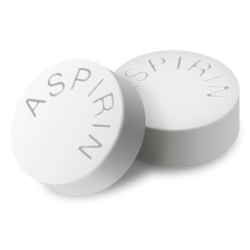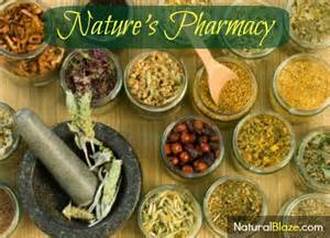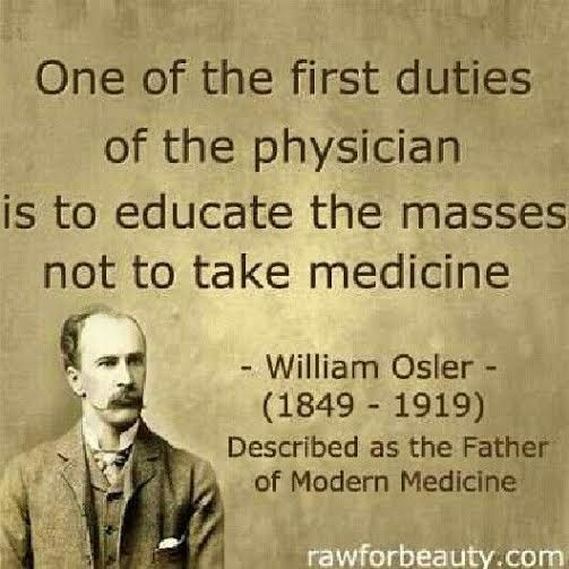
Nature and Health
Since the dawn of time, a basic human instinct has been to relieve pain and prolong life. There are only glimpses of how the earliest humans treated their ailments, but they likely sought cures in plants, animals and the minerals around them, natural remedies.
Even today more than half the worlds population relies on plants for medicines. Also, plants have served as the starting point for countless drugs on the market today. Take for example the humble Asprin:
As far back as the 5th century BC, the Greek physician Hippocrates wrote about the use of a bitter powder extracted from willow bark that reduced fevers and eased aches and pains. Native Americans also used an infusion of willow bark for similar purposes. What was this remarkable "healing" principle within the bark that relieved disease?
Known as salicylic acid (from the Latin salix, willow tree), this pain-killing compound is widely distributed throughout plants, where it functions as a hormone. The chemical acetylsalicylic acid, commonly known as aspirin, is a synthetic form of salicylic acid,
- See more at: The Worlds Natural Health Resource
Nutritional Medicine.
Nutritional Medicine is based on the principle that nutrients, including essential micronutrients, are required for the proper functioning of all the biochemical processes on which our bodies depend. Therefore, when treating symptoms or diseases, we look for the underlying causes which, although often partly genetic, are usually very much tied up with nutritional and environmental factors. This is in contrast to the tendency in the conventional medical approach to treating symptoms by through drugs or surgery.
Searching nature's treasure trove for potential medicines is often only the first step. Having tapped natural resources to hunt for new medicines, pharmaceutical scientists then work to figure out ways to cultivate natural products or to make them from scratch in the lab. Chemists play an essential role in turning marine and other natural products, which are often found in minute quantities, into useful medicines.
It is also true to accept that science has made tremendous strides in finding treatments for many human ailments. However, just because we are living longer doesn't mean we are living healthier! Regardless of the way researchers find new medicines, drug discovery often takes many unexpected twists and turns. Scientists must train their eyes to look for new opportunities lurking in the outcomes of their experiments. Sometimes, side trips in the lab can open up entirely new avenues of discovery.
For more information on this subject see:
NUTRITIONAL MEDICINE A drug free guide to better family health
Dr Stephen Davies & Dr Alan Stewart
Since the dawn of time, a basic human instinct has been to relieve pain and prolong life. There are only glimpses of how the earliest humans treated their ailments, but they likely sought cures in plants, animals and the minerals around them, natural remedies.
Even today more than half the worlds population relies on plants for medicines. Also, plants have served as the starting point for countless drugs on the market today. Take for example the humble Asprin:
As far back as the 5th century BC, the Greek physician Hippocrates wrote about the use of a bitter powder extracted from willow bark that reduced fevers and eased aches and pains. Native Americans also used an infusion of willow bark for similar purposes. What was this remarkable "healing" principle within the bark that relieved disease?
Known as salicylic acid (from the Latin salix, willow tree), this pain-killing compound is widely distributed throughout plants, where it functions as a hormone. The chemical acetylsalicylic acid, commonly known as aspirin, is a synthetic form of salicylic acid,
- See more at: The Worlds Natural Health Resource
Nutritional Medicine.
Nutritional Medicine is based on the principle that nutrients, including essential micronutrients, are required for the proper functioning of all the biochemical processes on which our bodies depend. Therefore, when treating symptoms or diseases, we look for the underlying causes which, although often partly genetic, are usually very much tied up with nutritional and environmental factors. This is in contrast to the tendency in the conventional medical approach to treating symptoms by through drugs or surgery.
Searching nature's treasure trove for potential medicines is often only the first step. Having tapped natural resources to hunt for new medicines, pharmaceutical scientists then work to figure out ways to cultivate natural products or to make them from scratch in the lab. Chemists play an essential role in turning marine and other natural products, which are often found in minute quantities, into useful medicines.
It is also true to accept that science has made tremendous strides in finding treatments for many human ailments. However, just because we are living longer doesn't mean we are living healthier! Regardless of the way researchers find new medicines, drug discovery often takes many unexpected twists and turns. Scientists must train their eyes to look for new opportunities lurking in the outcomes of their experiments. Sometimes, side trips in the lab can open up entirely new avenues of discovery.
For more information on this subject see:
NUTRITIONAL MEDICINE A drug free guide to better family health
Dr Stephen Davies & Dr Alan Stewart

A considered approach.
Genetics will affect each individual's predisposition to certain ailments. However, it might be said that although genetics will load the weapon, it is lifestyle that fires it!
That being said, more and more the medical profession is beginning to understand that lifestyle, particularly nutrition, is a significant factor in a persons well-being..
Genetics will affect each individual's predisposition to certain ailments. However, it might be said that although genetics will load the weapon, it is lifestyle that fires it!
That being said, more and more the medical profession is beginning to understand that lifestyle, particularly nutrition, is a significant factor in a persons well-being..

There's an old saying that we are what we eat. Well, not entirely accurate but a clear indication that what we put into our bodies is important. It will either protect us from illness, help us repair from illness or, if it is the wrong stuff, create illness.
A considered approach can help promote a longer life and put more life in your years.
Seek medical attention if appropriate but just as important use the abundance of natural products and supplements to take better care of yourself.
Find out more at:
.. supplements/nutrition that can protect or repair
.
A considered approach can help promote a longer life and put more life in your years.
Seek medical attention if appropriate but just as important use the abundance of natural products and supplements to take better care of yourself.
Find out more at:
.. supplements/nutrition that can protect or repair
.
